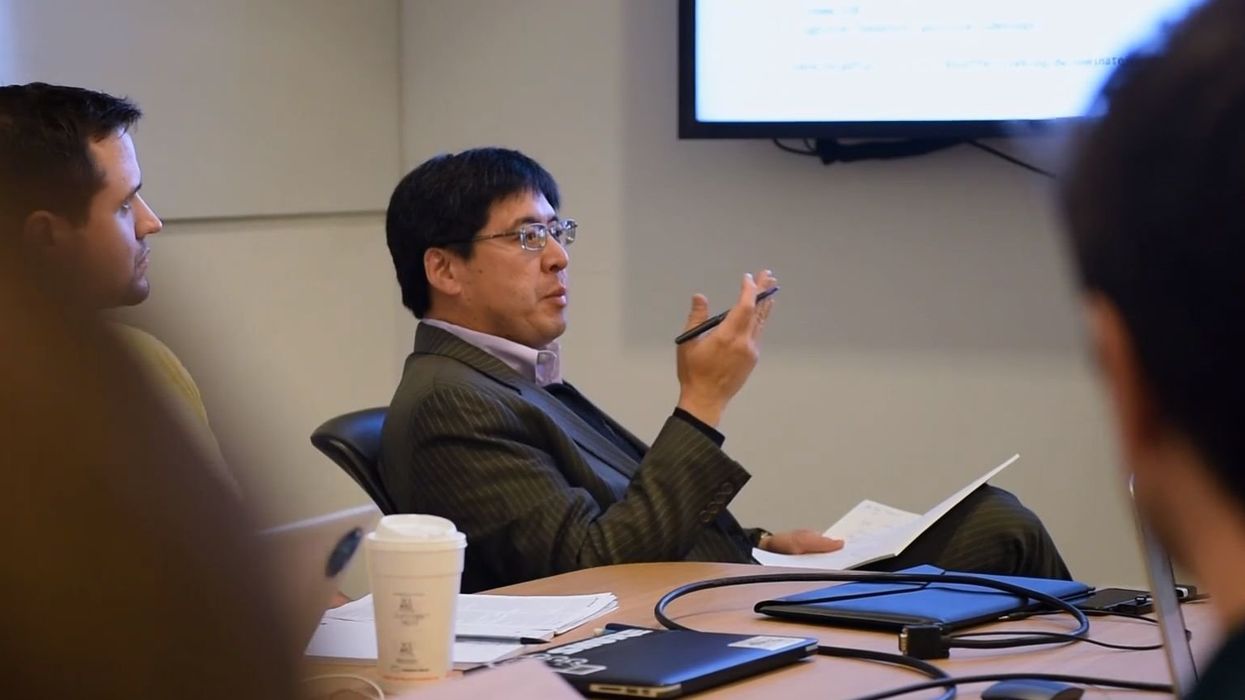Sam Wang is a professor of neuroscience at Princeton, where he's been on the faculty 14 years and focuses on how the brain processes sensory, cognitive and emotional information. But he's also part of the university's Program in Law and Public Affairs. He created the Princeton Election Consortium in 2008 to come up with statistical models for predicting presidential and Senate results based on polling. And after the last nationwide redistricting, in 2012, he created the Princeton Gerrymandering Project. Today he and his seven-member team run a website that permits voters to use mathematical models to decide if where they live is in an unfairly skewed legislative or congressional district. His answers have been edited for clarity and length.
What's the tweet-length description of your organization?
Combining data, tech and law to help citizens make district lines fairer and eliminate bugs from democracy.
Describe your very first civic engagement.
In 1978, when I was in sixth grade in California, I became very interested in two ballot propositions that would affect school funding. I loved school so these were important to me. The one that would have increased school funding, Proposition 8, failed. The other was Proposition 13, the first of many tax-cutting initiatives passed across the nation. After that, school funding was cut dramatically. So my side lost. But in politics you should never give up.
What was your biggest professional triumph?
In neuroscience it's a tie. First, figuring out how a brain structure, the cerebellum, which is mainly known for processing sensory information to help us move smoothly, could also guide higher function and when it goes off track lead to autism. Also, seeing the success of dozens of great students and scholars who have gone on to do all kinds of amazing things.
In redistricting it's another tie. First, seeing my team shape redistricting fairness in New Jersey by stopping a ballot initiative that would have biased districting, possibly helping with the wording of a fairer initiative and then getting an actual law passed to mandate transparency in precinct voting data so citizens can see what's being done to their district lines. Second, seeing Chief Justice John Roberts quote my words that there are good mathematical tests for identifying partisan gerrymandering
And your most disappointing setback?
Chief Justice Roberts again. He is not a math guy and he was not taking our side. Despite having no quarrel with our math, he wrote the majority opinion last year that wussed out and turfed the question of partisan gerrymandering back to the individual states to deal with. It was in my view an abdication of the Supreme Court's duty to stop a clear constitutional offense in the face of airtight mathematical and geometric approaches. The good news is that all our technical approaches can be used in the states — and we are doing that in North Carolina, Virginia, Michigan and half a dozen others. So we get to stay in business for a while.
How does your identity influence the way you go about your work?
As a former physics guy from a relatively privileged demographic, I started thinking about districting fairness in simple terms for which we could establish a national standard: fairness between the parties and numerical tests for racial bias. After encountering the needs of real communities, I've now learned that the richness of communities across the nation deserve consideration. We're working on ways to present that effectively across many states. This probably fits well with my work as a biologist, part of which involves attending to a lot of details.
What's the best advice you've ever been given?
It's better to ask for forgiveness than permission.
Create a new flavor for Ben & Jerry's.
Honey-dipped locust. (An homage to the cricket I ate live on CNN in 2016 to settle a bet. My statistical analysis of the polls had prompted me to wager I would "eat a bug" if Donald Trump won more than 240 electoral votes.)
What is your favorite TV show or movie about politics?
"Mean Girls."
What's the last thing you do on your phone at night?
I don't understand what the word "last" is doing in that sentence. That implies stopping, right?
What is your deepest, darkest secret?
I once made a pilgrimage to Carhenge.




















Trump & Hegseth gave Mark Kelly a huge 2028 gift